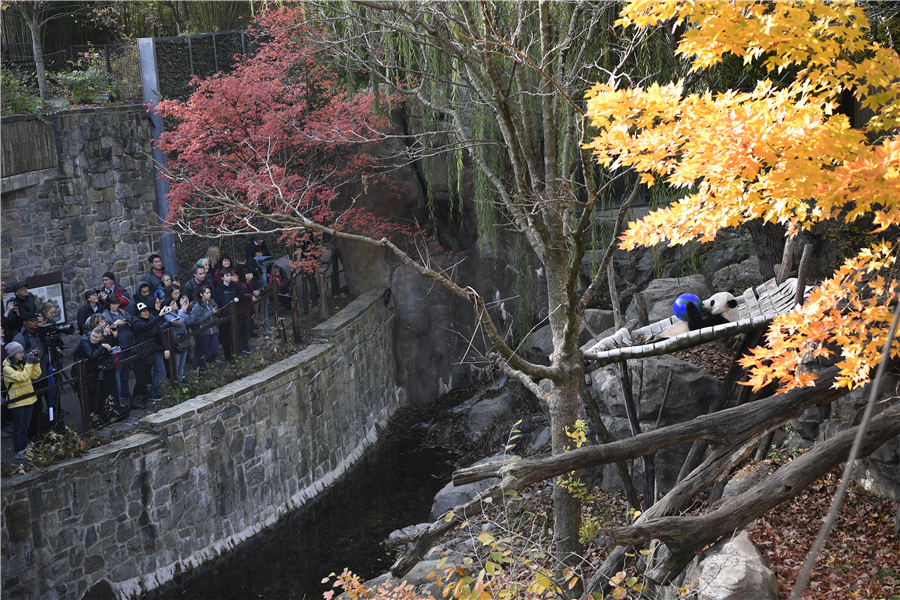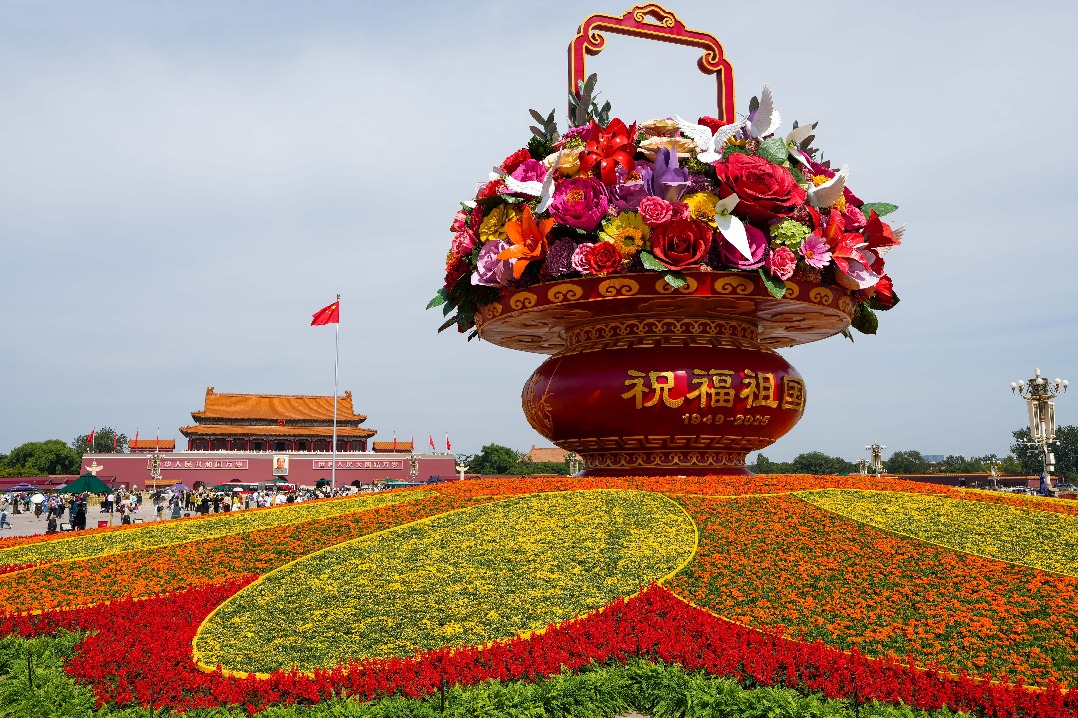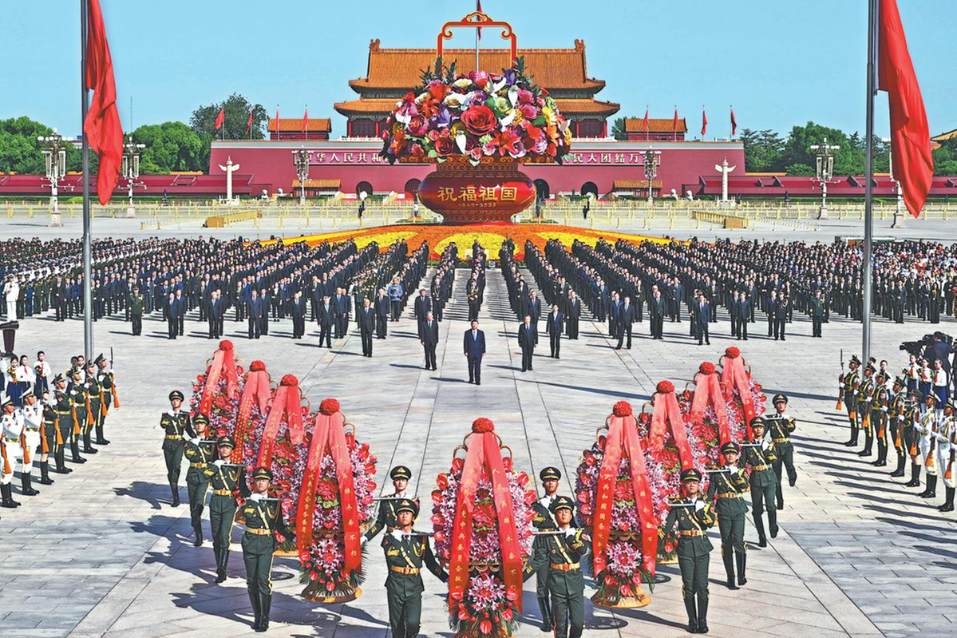Panda poised for new life in Sichuan






Days before Bei Bei's scheduled arrival, Su disinfected the quarantine enclosure where he will stay. It has been vacant since April, when two pandas, Ru Yi and Ding Ding, completed their monthlong quarantine and headed for the Moscow Zoo in Russia for a 15-year scientific program.
Cheng Yanxi, a 39-year-old veterinarian at the base, said a flame was used to briefly burn corners and cracks in the wall in a 20-square-meter den-areas difficult to reach with disinfectants.
A major in animal medicine from Southwest Agricultural University in Chongqing, Cheng has worked at the base since 2004.
He does not know how many pandas sent to the base from overseas he has cared for, but said the routine for their 30-day quarantine never changes.
The animals have a blood test to determine if they have any liver or kidney problems, or if they have a protein deficiency.
Since joining the base, Cheng has not encountered any major problems with any of the pandas arriving from overseas during their quarantine, and thinks that Bei Bei will not have any difficulty adapting to his new surroundings.
Food, water and temperature are important factors in whether pandas can adapt to a new environment.
"Sichuan has dozens of bamboo species. Our base alone can provide at least five species for Bei Bei to choose from, whereas overseas, there may be only one or two species available," Cheng said.
"There is no industry in the mountains where the Bifengxia base is located and the water quality is good," he added.




















